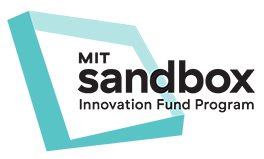MIT DHIVE Women’s Health track
A Deep Dive into Healthcare Innovation
The MIT DHIVE Women’s Health Track is a new and exciting internship opportunity exploring a variety of needs for Women’s Health including closing the gap in research for Women’s Health. Participants will gain insights from knowledgeable subject matter experts on key needs and challenges, engage in brainstorming and ideation activities, and learn from seasoned entrepreneurs how to transform ideas into viable solutions. This DHIVE 2024 program track is now complete. Complete this form to be informed of the next DHIVE program HERE.
All of the DHIVE tracks offer an opportunity to learn about a variety of challenging healthcare problems that need solutions. The program is designed to provide you with education on various topics to spark your own ideation for possible solutions. There are no set expectations, and we encourage ideation and creative out-of-of-the box-thinking. We also value diverse educational backgrounds. If you are interested in healthcare innovation and entrepreneurship the DHIVE program is for you!
Summer 2024 Potential Projects To Explore:
Women’s health currently represents only 10% of the NIH budget, 4% of the global biotechnology market, and 2% of venture capital funding in health technology. These nascent efforts are only beginning to close the existing knowledge gap. The following tracks represent just a few potential avenues for exploration toward the goal of improving women’s health outcomes:
Mitigate Adverse Drug Reactions for Women
One third of prescription medications have never been tested in the women that represent 51% of the population. Perhaps not surprisingly, female sex has been described as the biggest risk factor for adverse drug reactions across all classes of medication. Sex differences in pharmacokinetic measures are known to reliably predict adverse drug reactions in women, and this information could be invaluable to prescribers, if only it were accessible. The development of AI-based tools to analyze and interface with electronic medical software could create the first evidence-based prescribing database for women.
Improve Health Tech for Women
In 2019, 70% of medical device injuries or deaths harmed women, largely because they were not validated in women. Increasingly, wearable biometric systems and AI tools are being used in healthcare settings to aid in diagnosis, treatment, and prevention. However, these new technologies often fail to consider sex, gender, race, or ethnicity in their design, which has led to inaccurate data collection and put women at greater risk. Biomedical technology that is built and validated with sex in mind could begin to reverse this trend.
Remove Basic Barriers to Data Collection for Women
One of the biggest barriers to women’s health advancement is the lack of basic tools for data collection. For example, a standardized method to collect women’s health history for biomedical research or tools that can accurately measure hormones in brain and body would allow scientists to begin to answer very basic questions about how sex/gender impact physiology.
Who Should Apply?
Individuals interested in healthcare entrepreneurship who want to explore potential topics/problems individually or by joining an existing team.
Individuals who have a novel idea on how to address a particular need or challenge related to any of the potential areas
Individuals who have expertise in proven technologies and are interested in applying their knowledge to address these unmet needs
Current or recent MIT Sandbox team members interested in exploring the application of their concept to address a particular need or challenge related to above
Eligibility and Program Information
Eligibility
Open to all MIT undergraduate and graduate students and Non-MIT students.
Limited paid Internships are available for MIT undergraduate and graduate students who can commit at least 20 hours/week. Undergraduate internship rate $15 per hour. MIT graduate student internship rate is $20 per hour.
Graduate students who have a RAship and are unable to commit 20 hours/week are still eligible for a limited paid internship and encouraged to apply.
Non-MIT students are welcome to apply, although internship stipend is not guaranteed.
Current or recent Sandbox team members are eligible to apply.
Program Elements
Mentorship from experienced entrepreneurs and subject matter experts
Education on understanding the needs and challenges related to specific healthcare focuses
Entrepreneurship-related workshops
Expert-led talks tailored for specific track focuses
Facilitated team formation; Opportunities to connect with the existing teams and other participants to foster collaboration
Tailored MIT I-Corps Customer Discovery workshop
Potential for continued support in MIT Sandbox


